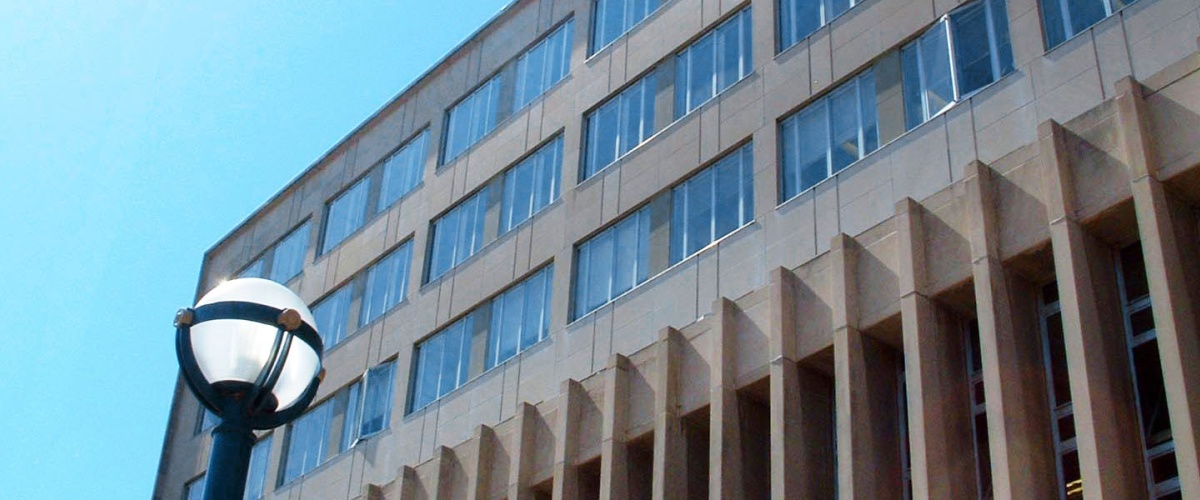
Edgewood's Conditional Use Application
postedHi Everyone.
Edgewood is applying to put up four light poles, either 68 or 80 feet, and are not asking for anything else at this time. Their application includes the stipulation that lights would be turned off at 11 pm on weekends, and 10 pm on weekdays, albeit with a broad range of exceptions. The application does not include any limits on the number of games.
When I met with Edgewood on March 9, I asked them to "go slow" in order to rebuild trust with the neighborhood. The application that followed just two days later, lacking any limits on the impact lights will have on the neighborhood, doesn't in my mind represent going slow.
That Edgewood would move forward with an application that doesn't acknowledge the impact this expanded use will have on their neighbors is disappointing.
In fact, Edgewood has long been aware of community opposition to their quest for night games.
In a June 15, 2015 article in the Wisconsin State Journal about improvements to Edgewood's practice facility, Edgewood President Michael Elliot acknowledged that "the project has received the support of area neighborhood groups that have balked in the past at the idea of turning the facility into a competition site for Edgewood's many athletic programs."
President Elliot is then quoted as saying: "We're between two neighborhood associations. They have been vehemently opposed to us having lights or playing games here. We're really building this to be able to give our athletes the practice facilities that provide the best surfaces possible and to expand the amount of outdoor practices we can hold especially in the spring. That is our focal point."
Less than two years later, after the upgrades to the practice field were approved with neighborhood support, Edgewood shifted gears and sought approval for a full stadium build-out of their athletic complex. Their case was centered on two main arguments: 1) Improvements to technology to mitigate the impact of lights and amplified sound, and 2) the loss of their ability to hold their home games at Middleton's Breitenbach Stadium.
It was later revealed that Edgewood had walked away from their agreement with Middleton voluntarily. Middleton High School welcomed them back at any time, yet Edgewood walked away because they wanted their own field with lights. This lack of transparency damaged relations with the neighborhood, fraying the bonds of trust.
Prior to pulling their Master Plan Amendment, Edgewood paid for a sound study that determined noise impacts would spill over into the adjoining properties. At that time, Edgewood suggested adding a sound barrier along Woodrow and Monroe Streets to mitigate noise as part of a compromise.
Instead of pursuing an amendment, a strategy utilizing legal pressure resulted in the repeal of its Master Plan which had taken several years to negotiate. More than 80% of the 35 homes within 200 feet of the athletic complex filed a protest petition opposing the Master Plan repeal. The repeal was nonetheless adopted by Common Council this past January. As a result of that repeal, today Edgewood enjoys the right to unlimited daytime use for games and practices and may rent out their field to outside entities.
In summary, what started five years ago with a quest to upgrade Edgewood's practice field resulted in that field being used 77 times for various daytime games in 2019.
Edgewood's application to expand that use into the evening hours makes no mention of any of this history.
The application makes the claim that "Field Lighting will not create additional noise, however, we will comply with all City ordinances, including noise ordinances."
Edgewood seems to be saying two things. One, that the lights themselves will not make noise. No one would suggest otherwise. But what the lights would allow, the uses the lights would activate, clearly would create additional noise.
Second, Edgewood states the night games made possible by the lights would not violate noise ordinances. They do so without offering any evidence, as if to say, trust us, there's no need to worry about the impact this expanded use would have on nearby neighbors.
But we all know what a football game sounds like. Neighbors opposing this application have submitted evidence to that effect. Here are two videos of a Waunakee HS football game recorded in October 2018 from a distance of less than 200 feet, shot from different angles to represent what a football game on Edgewood's field would sound like to homes along Woodrow. First video. Second video.
That same game was also recorded from 700 feet, which gives an idea of the extended reach of the sound of cheering crowds, pep bands, recorded music, and play-by-play announcers over a PA system. Third video.
Last night I walked down to Lake Wingra just past 8:00 pm to watch the moon rise over the horizon. Wingra is an urban oasis, a place of repose, and Madison's quietest lake. I asked myself what that experience would be like on a Friday night with a football game going on two streets away. Would it be "substantially impaired or diminished in any foreseeable manner"?
The stillness of the night held the answer. Recreational uses of Lake Wingra would very likely be impacted and not in a good way.
That quote above comes from the Standard for Review of Development Proposals Requiring Approval as a Conditional Use. The full standard is as follows: "The uses, values and enjoyment of other property in the neighborhood for purposes already established will not be substantially impaired or diminished in any foreseeable manner."
Edgewood supporters repeatedly suggest it's the fault of residents who chose to live close to a high school, that Edgewood should be allowed to do what all other public high schools have done, that these lights are the same as were installed two years ago at Memorial. These arguments don't hold up. Nearby residents had no reason to anticipate night games at this location, and in fact had been reassured by the high school president as recently as 2015 that this was not the plan. The neighborhood public school, West High, with a student body four times the size of Edgewood's, does not have a home field stadium. They, like their compatriots at East, maintain a healthy sports program while playing their home games off campus.
These arrangements are not uncommon among urban high schools across the country because they were often platted alongside tight-quartered residential developments long before "Friday Night Lights" became a thing. In other words, dense, small lot, traditional residential neighborhoods are different from suburban or exurban neighborhoods.
The situation with Memorial High is different. Memorial, in this instance, had already established its use for night games some forty years ago when they built their stadium. The apartment complex that stands somewhat proximate to the east end zone today did not exist at that time. Moreover, the LED lights installed there in 2018 were replacement lights, not a new use.
Today, Edgewood has no legally established interest in night games that outweighs the interests of property owners in the neighborhood. To the contrary, there is clear evidence that already established uses, values and enjoyment of nearby property owners would be substantially impaired.
I invite policy makers to walk along Woodrow and Monroe, the two streets bordering the athletic field. Imagine if you lived in one of those homes there. Suppose you're trying to read "Goodnight Moon" to your 2-year old daughter at 7:30 pm and a game is going on across the street.
Further indication as to what that might be like has been provided by a resident on Monroe Street right across from the field. The video was of a 2018 Edgewood boys soccer game during the day. You can watch it here.
Peak decibel readings exceeded 80 dBs.
As the videos of the Waunakee football game attest, one can extrapolate that with more cheering fans, opposing pep bands, and a play-by-play announcer, the impacts would be even more substantial.
Edgewood seems to be saying, don't worry, we will comply with the noise ordinances, that lights merely allow us to extend into nighttime what we're able to do during the day.
That's flawed reasoning. What happens during the day in all our lives is different than what happens at night when people are trying to sleep. Particularly in this neighborhood, when the ambient night-time decibel readings are in the low 40s.
Day and night are different. You may be able to get away with turning up your stereo in your backyard during the day, but if you crank it up to the same level at 9 pm at night, you just might get ticketed for disturbing the peace.
It's understandable that Edgewood would like to have night games on their field. It would likely add an increment of school spirit, assist in recruiting, and provide needed revenue.
In order to capture these benefits, however, Edgewood must first prove they can do so without substantially burdening their neighbors.
Edgewood is anticipating 46 regular season night games per year plus a possible 18 playoff games. By way of contrast, Camp Randall has only one or two night games a year.
With such a bold request, one that disregards the spirit of partnership, community and my suggestion to "go slow," Edgewood provides no evidence that they can meet the standard of not substantially impairing the uses, values and enjoyment of adjacent property owners by their proposal to host multiple night games on their athletic field.
In the absence of that evidence, I recommend Plan Commission deny the applicant's request for a conditional use permit to install lights on their athletic complex at 2219 Monroe Street.
